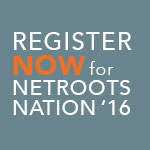After a great run, the Winning the Internet blog has been retired. However, you can still keep in touch with New Media Mentors here.
This was originally posted to the ZeroDivide blog on January 31, 2012.
On Jan 18, 2012, the web pulled off a much-publicized and widely coordinated protest campaign to oppose SOPA and PIPA by “going dark.” The effort, which included participation by notable web giants such as Google, Mozilla, Craigslist, and Wikipedia, was aimed at building public opposition to 2 proposed anti-piracy bills that were moving through Congress – the Stop Online Privacy Act in the House of Representatives (SOPA) and the Protect Intellectual Property Act (PIPA) in the Senate.
The passage of these bills seemed all but inevitable as Congress adjourned for winter recess in mid-December 2011. Yet within a stunningly short time, a diverse coalition of loosely organized constituencies managed to come together and stop them, generating so much public opposition that lawmakers were forced to change their minds abruptly.
This win is both mindboggling and precedent setting. Who would have guessed that a ragtag collection of media and free speech advocates, technologists and academics, First Amendment policy wonks and open Internet enthusiasts, was capable of beating back bills that were supported by a powerful bloc of entrenched interest groups with long-standing relationship in Washington – namely, the media industry, big pharma, and luxury consumer brands?
What were the keys to success that enabled this victory? Here’s Part 1 of my thoughts on how “the Internet” got galvanized and emerged as a constituency in American politics that moves swiftly, virally, creatively, and deftly – a powerful force to be feared and reckoned with.
Messing with Innovation and Free Speech: Why the Internet Hated SOPA and PIPA
Essentially, both SOPA and PIPA sought to expand the ability of law enforcement to fight online piracy by granting courts the authority to bar advertising and online payments to websites that are suspected of trafficking copyrighted intellectual property or counterfeit goods. Other provisions in the bills sought to require search engines to stop linking to such sites and Internet service providers to block access to them. Both bills also proposed expanding existing copyright laws to include streaming material like those found on YouTube.
For example, if passed, this kind of awesome would be deemed illegal.
In addition to concerns over censorship, anti-SOPA/PIPA protestors were very worried that the bills would devastate the online industry by 1) causing website owners to spend inordinate resources policing their own users – costs that would be prohibitive for Internet start-ups; and 2) diminishing funding for start-ups by venture capitalists due to the financial impact of onerous policing. So dangerous were SOPA and PIPA, protestors argued, that if passed these laws would essentially “break” the Internet. So break the Internet is exactly what protestors did, albeit temporarily and symbolically.
Creating a Fierce Urgency of Now: Going Dark Together
To bring home the point that SOPA and PIPA would restrict access to websites in an overly broad manner – no matter how important those sites might be to consumers and citizens alike, protestors decided to demonstrate a frightening, worst-case scenario: a 24-hour coordinated Internet black-out that would commence at midnight on Jan 18, 2012.
After notable web giants such as Google, Mozilla, Craigslist, and Wikipedia announced their planned participation in the coordinated blackout around Jan 16, it quickly inspired thousands of others to follow suit. True to the ways of the networked world, where information moves freely and quickly, a wave of activism unleashed itself across multiple channels on and offline, fueled by the talent, ingenuity, and industriousness that is the cognitive surplus.
Measuring Impact: Results from the Black-Out
When it was all said and done, here’s the measurable impact from the Jan 18, 2012 Internet blackout:
- Over 162 million people reportedly saw Wikipedia’s blacked-out message, “Imagine a world without free knowledge”.
- Over 70,000 smaller websites, including those belonging to private companies, individual citizens, and advocacy organizations, either “went dark” to protest SOPA and PIPA or had something posted.
- Over 70,000 people added anti-SOPA/PIPA badges to their Twitter, Facebook and Google+ avatars and profile pictures.
Google reported that over 4.5 million people signed their anti-SOPA/PIPA petition. - 103,785 people signed a petition hosted on the Obama Administration’s We the People platform.
- Hundreds of thousands people sent emails and made phone calls to Congress.
With such an assault, much to my delight – and, honestly, surprise – in less than 24 hours, Congressional support for the bill flipped:

Learning from the SOPA/PIPA Fight: Advocacy in a Networked World
So what were the key elements of the anti-SOPA/PIPA movement that enabled it to succeed? Please stay tuned for Part 2 on this topic next week, where I’ll propose some lessons for advocates fighting the good fight in a networked world.




Trackbacks/Pingbacks
[…] the defeat of the Stop Online Piracy Act (SOPA), lobbyists for Big Business have been very careful when […]
[…] the defeat of the Stop Online Piracy Act (SOPA), lobbyists for Big Business have been very careful when […]